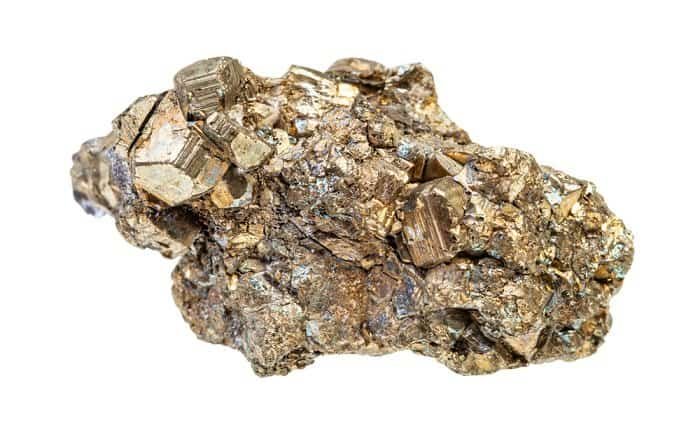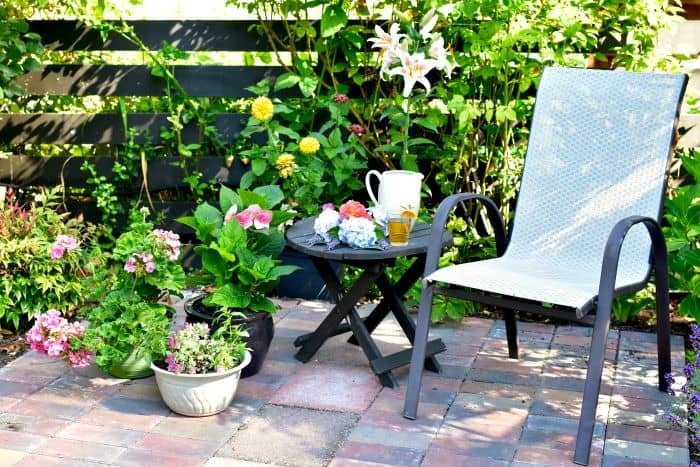How To Find Gold In Your Backyard
Gold. People have been digging it since before anyone can truly remember. It has been a precious metal that many love to obtain, but how difficult is it to get your hands on a little bit of gold?
You can find it anywhere, even in your backyard! Many people have discovered it in their backyard, but not everyone. And although there may be a chance you won’t find any, it’s still worth a try.

Table of Contents
Get The Tools You Need
The great thing about searching for gold, you don’t have to go out and buy a bunch of machines and tools to help you dig. You can use some household items or tools around the house, but you will need exactly what is on this list for the best results.
Here are a few items you will need if you want to do this like the professionals:
- Panning pan
- Water
- Water hose
- A shovel
Panning pans are not an expensive tool. You can try using a household sifter, but you won’t have as much luck if you just bought this item. It ranges anywhere from fifteen dollars to a hundred dollars. You can even buy yourself a gold panning kit online!
Find A Spot To Dig
Location is key to the success of your finding some gold in your backyard. Now, it’s not the location of your backyard but in all where you are located. If you live close to water, you have more of a chance of finding gold.
Gold is often found near bodies of water like rivers and lakes. Look for areas that are sandy or gravelly. This is the type of terrain where gold can be discovered. Remember that gold is still a rare metal, and there is still a chance you may not find it at these locations.
Once you find your spot, make sure to mark the areas you have already worked though. You don’t want to continue in the same place to no avail.
Sift Through The Dirt
Sifting through the dirt will be physically demanding, so make sure that you don’t hunch your back the entire time you are digging. Being in this position can cause lower back pain. Bend your legs and use them for when you move up and down. Try not to bend at the waist.
Scoop the sand or dirt into your pan and start sieving through it. Digging for gold could take several hours, and you may not even find much during this time. You will need to use the water to help rinse the sand away and see what is left behind.
Gravel may be a little more difficult. You will have to sift through some of the larger pieces with your hands to check if you have any gold in the mix.
You will find yourself in a crouched position sifting through all the sand and dirt. If this seems like something you aren’t capable of doing for more than an hour, you may want to try something else or complete this activity in short spurts. You don’t want to wake up the next morning sore and stiff.
Stay Hydrated
Whenever you are outside in the sun, you should keep hydrated. Dehydration can be an obstacle during this activity. You could be losing water through sweat and keep some water nearby to drink as you work.
On a warm, humid day, you could lose up to 2 pounds of water just by sweating, so it is extremely important to stay hydrated. Here are some signs that you may be dehydrated:
- Dizziness
- Feeling thirst
- Feeling tired
- Dry mouth
Also, know the signs of heat exhaustion. Heat exhaustion can make you sick and eventually pass out. Taking breaks often will help prevent dehydration and exhaustion from overwhelming you.
Mark Your Dig Spots
Don’t forget to mark the spots you have already dug. You don’t want to keep sifting through the same old areas you know don’t have any gold.
If you want to be like a professional, You can even rope off different sections and make your way to each section. To do this, you will need wooden stakes and rope to section off the area. Don’t make each area too large so that you forget what part of the area you have just completed.
Sectioning off areas is for those that love to be highly organized. It is not for everyone, and if you want just to wing it, then that’s your preference.
Take Those Breaks
Taking breaks is imperative for your physical health. Panning the soil can be taxing on your body, so make sure to take breaks every so often. Listen to your body. It will tell you when you need a break.
During your breaks, get some water or food. Both are necessary to give you the energy to continue sifting through the sand to find that buried treasure. Make sure to relax during this time. Do not continue to do other stuff like cleaning up while resting. Use this as rest time.
Be Realistic
Gold is considered a rare metal for a reason. It is not easily found everywhere, and even in areas that it is common to find gold, it is still difficult to hit that jackpot. If you are having trouble finding gold in your backyard, take a pause and reevaluate your process.
Even if you do find some gold, understand that a few flakes will not get you rich. You will need quite a bit to get any money in exchange for it.
Remember that you can find some precious gems that can become a great reminder of the time you had. The earth has many valuable stones that aren’t gold and are just as beautiful as gold. You may find something more gorgeous that your kids will love more.
Watch Out For Fool’s Gold

You may come across gold flakes and think you have struck gold, but be careful. You may have found Fool’s Gold or iron pyrite. They look very similar and can easily be mistaken for each other. Gold is worth much more than Fool’s Gold.
Although they look similar, there are ways you can differentiate them from each other. Here are two ways to make sure you have found real gold:
- The color.
- The density.
The Color
Fool’s Gold will not be as vibrant in color as real gold. It will look dull especially compared to real gold. But not everyone has the eyes to tell the difference. Good thing you can try one more test before seeking out an expert.
The Density
Iron pyrite has a more solid density than gold. Real gold is soft compared to its fake counterpart. You may have seen the image of someone biting gold to see if it is genuine. Biting gold is to test the consistency of it. If it is hard, it is most likely iron pyrite and not the real deal.
In the end, if you are unsure about whether the metal you found is Fool’s Gold or real gold, you can take it to an expert, and they can identify if it is certified gold.
In Conclusion
Digging for gold in your backyard can be such an exciting adventure. You and your family can make a day of searching for that stone. And even if you may not find the hidden, rare metal, you still may find something just as precious. A fun memory can last you and your family quite a while. You never know what could be in your backyard, and it may not just be gold. There’s possibility of finding other rocks, such as diamonds, crystals, and even finding treasure!







I live in NC which was the gold place in 1900s until California and it was after finding various quartz clear, white, pink, amethyst, turquoise, rubies I found a quartz with what looks like stripes of gold within it. I have majority red clay but live near swampy area. So I would love someone to help.